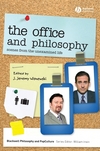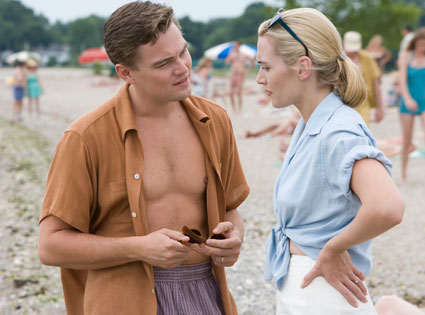 Yesterday, I finally got around to watching the latest Batman offering, The Dark Knight, with Linda and my siblings. It's a fantastic film - and this post will probably be full of spoilers, so if you've not yet seen the film, do yourself a favour and see the film before reading this post!
Yesterday, I finally got around to watching the latest Batman offering, The Dark Knight, with Linda and my siblings. It's a fantastic film - and this post will probably be full of spoilers, so if you've not yet seen the film, do yourself a favour and see the film before reading this post!
Superhero films tend to struggle to know how to present the cities in which they are set. Should such a setting be realistic or based more in fantasy? Gotham City is presented as being very much in the real world - it's a New York or a Chicago, but sleek and dark, clean and with lots of straight lines. Gotham is a cross between grit and beauty, providing an incredible backdrop for the action within.
The film appears well cast. Christian Bale (who went to my school in Bournemouth!) does well in his role; by day as cocky and suave businessman Bruce Wayne, and by night as the angst-gripped and often guilt-ridden Batman. Heath Ledger is fantastic as the Joker, living up to all of the hype. He owns the screen of the scenes he is in. The Joker is quite terrifying, mixing comedic nihilism with sheer brutality to great effect.
The backdrop and the casting provides the springboard to the big questions that the film poses.
Gotham is presented as a very needy city, where peace is fragile and difficult to maintain. Although in parts the film seems to present goodness as part of human nature (in particular in a scene with two ferries), the overwhelming tide of the film presents human nature and deeply flawed and even evil. The film examines the question of whether we're able to keep to our own moral frameworks, particularly when placed under intense pressure (a tactic that the Joker uses on several occasions). Pressure shows everyone's uncomfortable shortcomings. This reminded me of something that CS Lewis wrote on this theme in Mere Christianity. He wrote that, often, when we let ourselves down somehow, we blame the pressure we found ourselves under. In his own words,
'The excuse that immediately springs to my mind is that the provocation was so sudden and unexpected; I was caught off my guard, I had not time to collect myself. Now that may be an extenuating circumstance as regards those particular acts: they would obviously be worse if they had been deliberate and premeditated. On the other hand, surely what a man does when he is taken off his guard is the best evidence for what sort of a man he is? Surely what pops out before the man has time to put on a disguise is the truth? If there are rats in a cellar you are most likely to see them if you go in very suddenly. But the suddenness does not create the rats: it only prevents them from hiding. In the same way the suddenness of the provocation does not make me an ill-tempered man; it only shows me what an ill-tempered man I am. The rats are always there in the cellar, but if you go in shouting and noisily they will have taken cover before you switch on the light.'
In the film, as the Joker applies the pressure and makes people make snap decisions very different to those they might have made in the cold light of day, we see a different side to various characters. Perhaps we see them as they really are. Perhaps we see darkness in the hearts of each person.
Another theme is the morality of the operation of vigilante characters like Batman who operate outside of the law. As the film opens, Batman is receiving a bad press: although Batman has Gotham's law-breakers on the run, many are saying that Batman should hang up his costume and leave crime fighting to the police authorities. That seems all the more possible when a new District Attorney, Harvey Dent, is appointed. At last it seems that Gotham will be rid of crime through legal means.
Through the introduction of the Joker and his psychotic genius, Batman is drawn out of 'retirement' and back into crime fighting. Yet this is only with a lot of angst on Batman's part: in common with many 'post-modern' superhroes, Batman appears frightened of who he may be, who he may become and personal sacrifices he will have to make. The clues of the film also suggest that Batman fears that his vigilante crime-fighting may have even encouraged criminals to further their games to new levels of danger and risk.
At times, Batman also seems to over-step the line of what is 'acceptable', even as a vigilante crime fighter. In one part of the film, particularly, he seems to infringe the human rights of others in order to be able to perform his role. Yes, this is always with a view to eventually restoring order to the state and its authorities (as it seems that Batman realises that the long-term health of Gotham depends on a fair and judicial legal system), but Batman considers operating outside of their restrictions regrettably necessary in certain situations. On another occasion, Batman considers it necessary to lie to the general public in order to re-establish law and order under the authorities. All of these actions are presented by the film in a sympathetic light. Batman is, after all, and even with all his flaws, the hero. This has led some commentators to wonder whether director Christopher Nolan is offering a sympathetic critique of the real-life 'vigilantes' that are operating as part of the global 'war on terror'.
A sympathetic critique, perhaps, but the film seems to realise that even Batman can't ultimately win in his role as a one-man fighting force in the war on terror in Gotham City. The depressing truth is that no matter how many criminals Batman puts away, we all know that this isn't the end of the story. The corrupt system will either release them, or even more unsavory criminals will replace them. There's a limit to the effectiveness of Batman's violence, whether that is violence employed in conjunction with the government and authorities or outside of it.
Christians believe that there really is only one man to whom we can look in our despair. He was anything but a rule-bending law enforcer, but dealt with violence and crime at its root cause.
My friend Chris Oldfield has written another review of The Dark Knight, which is far more eloquent and thought-provoking! You can read it here.
 I was listening recently to Pixie Lott's Boys and Girls on the radio. It got me thinking: why are there so many pop songs about dancing?
I was listening recently to Pixie Lott's Boys and Girls on the radio. It got me thinking: why are there so many pop songs about dancing?














